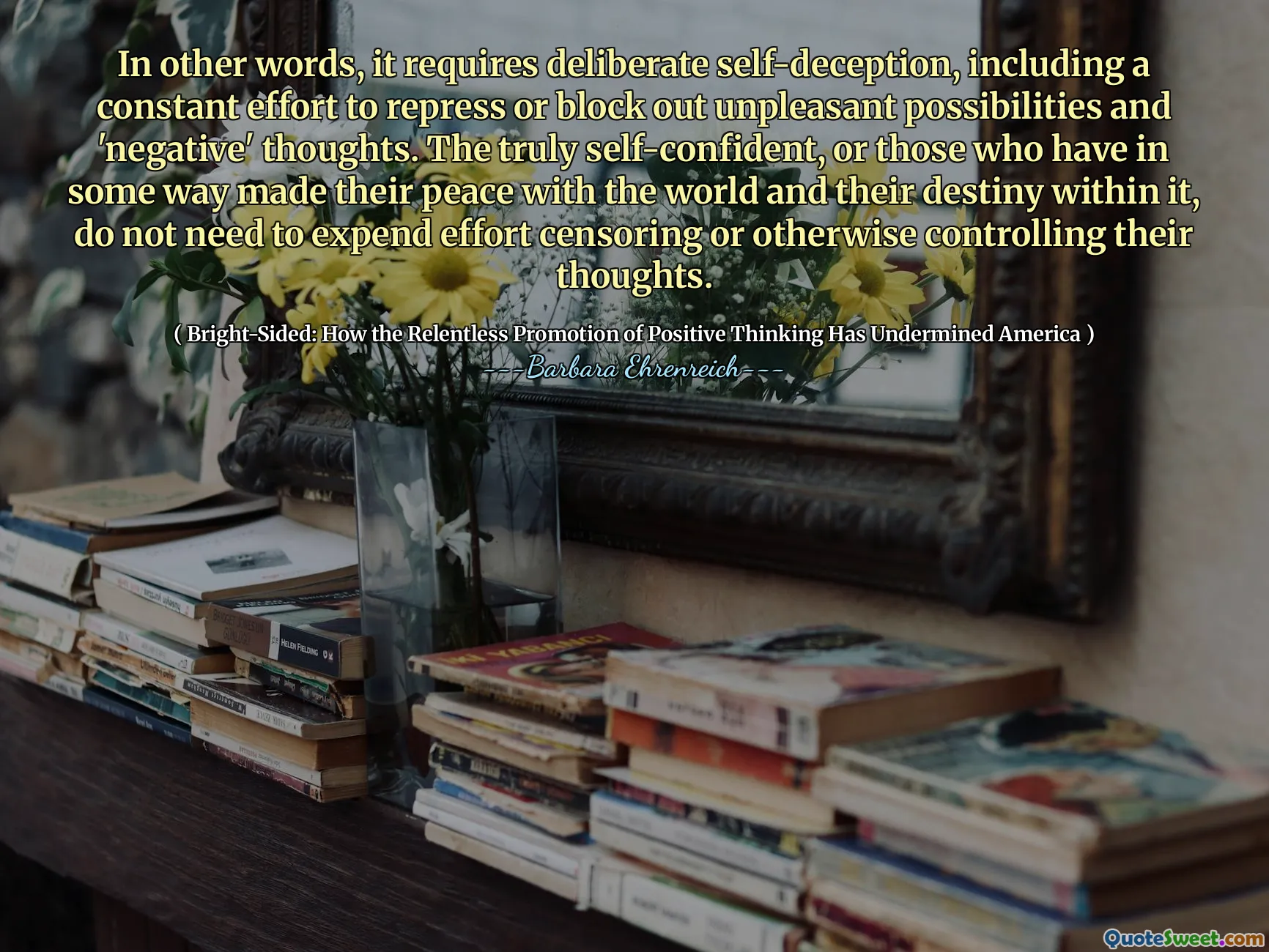
In other words, it requires deliberate self-deception, including a constant effort to repress or block out unpleasant possibilities and 'negative' thoughts. The truly self-confident, or those who have in some way made their peace with the world and their destiny within it, do not need to expend effort censoring or otherwise controlling their thoughts.
This quote deeply explores the psychology behind our approach to confidence and mental resilience. At its core, it challenges the common notion that positivity and self-confidence necessarily stem from a filter that blocks out negativity. Instead, Barbara Ehrenreich suggests that such repression is a form of self-deception—a deliberate choice to avoid unpleasant realities rather than face them directly. This dichotomy between forced optimism and genuine peace illuminates a significant psychological truth: true confidence arises not from denying difficulties or negative thoughts, but from accepting them and making peace with one’s circumstances and destiny. Importantly, this acceptance doesn't require constant mental labor to maintain a positive facade; rather, it allows the mind to be freer, less burdened by the weight of censorship and suppression. This insight speaks volumes about the mental toll that compulsive positivity can exact, which Ehrenreich critiques in her book Bright-Sided. The relentless pursuit of positivity can ironically undermine mental health by discouraging authenticity and the natural processing of complex emotions. Embracing both the light and dark aspects of our thoughts can lead to a more grounded, robust kind of confidence—one that is steady and realistic. This perspective encourages a healthier dialogue with ourselves, promoting emotional wellbeing that comes from integrating all facets of experience rather than selectively ignoring those that seem uncomfortable or unwelcome.






